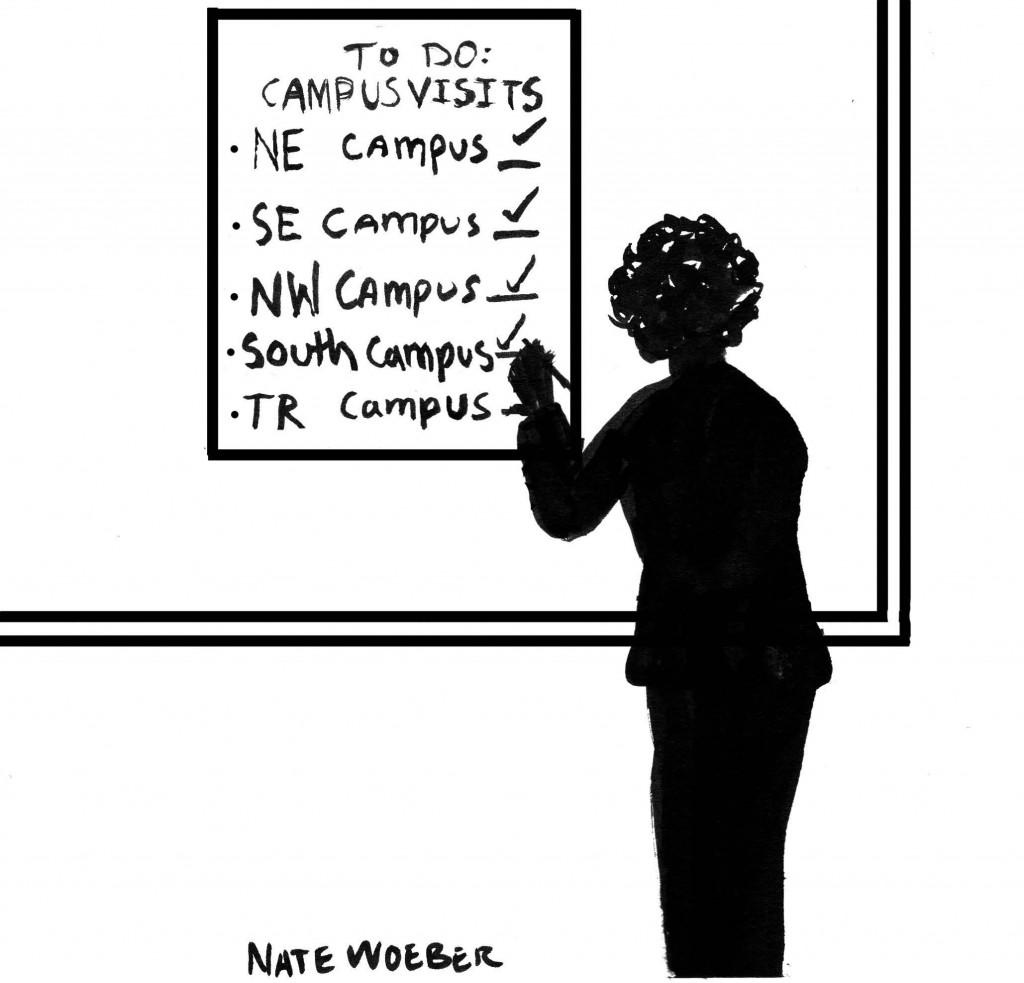Viewpoint by Colt Langley/managing editor
Since registration for the spring is now open, consider taking classes you enjoy or find interesting next semester.
Then, take core classes in the summer or mini-mesters.
Summer classes usually last about five weeks and run from Monday-Thursday with longer class periods than those of a regular fall or spring class.
Mini-mesters are usually 2.5-3.5 weeks and can vary in days, sometimes with classes on Saturdays.
But to go ahead and get the credit out of the way in a few weeks is worth it.
It can be difficult to keep up in required classes that one may not find completely interesting.
Not to say that these classes aren’t interesting or important to take, it just makes the whole college experience more tedious.
Classes like history, science and English are all a part of the Texas core curriculum and can seem long and monotonous unless a degree in any of the subjects is desired
With math, another core course, many students, if not most, have to take one, two or even three remedial courses before they can take college algebra.
Since I have a shorter attention span in classes over full-length semesters, taking core classes in the summer and shorter semesters has allowed me to make better grades.
It’s also easier to take interest in and devote more time to classes in the shorter semesters because the most classes anyone can take without college approval is six hours. But that’s a whole semester that can be taken care of over a summer if one attends both sessions.
So instead of sticking it through the spring semester with classes that will cause more stress than good, take special-interest classes that also apply toward a degree.

























